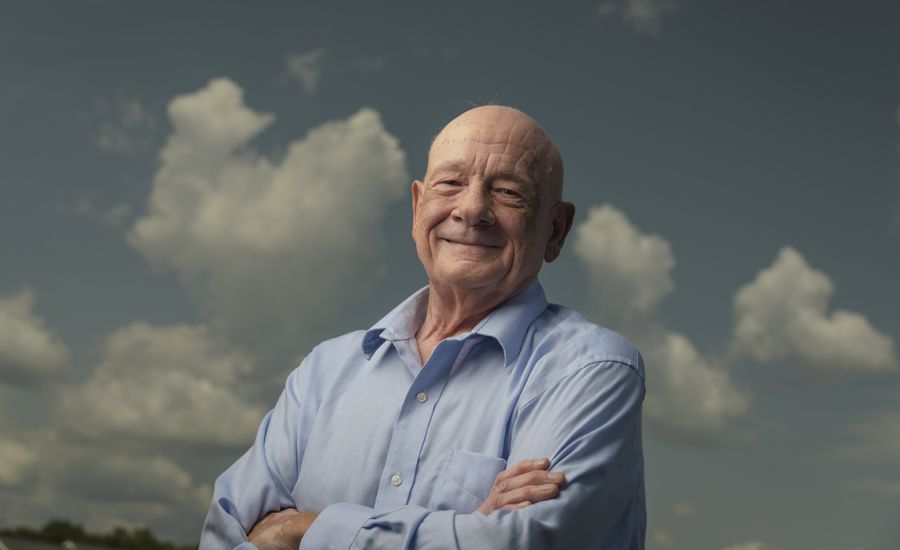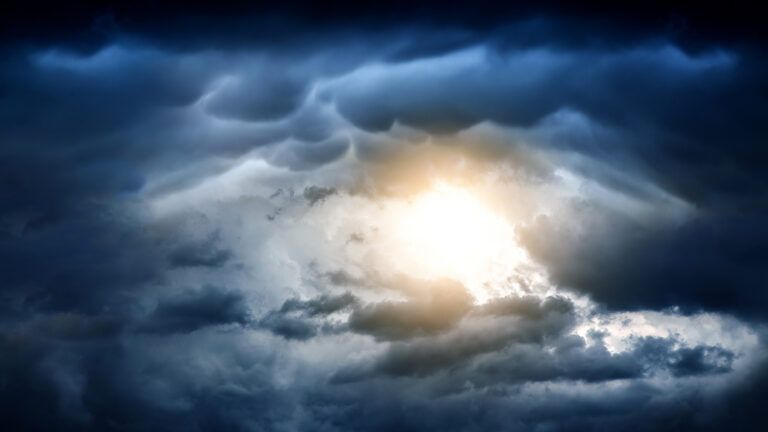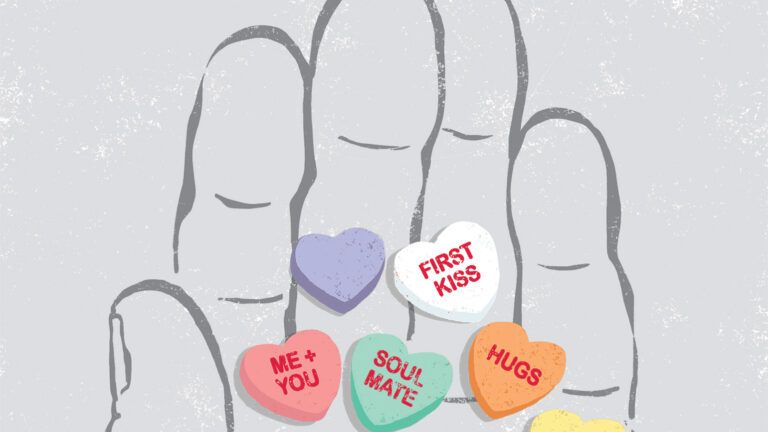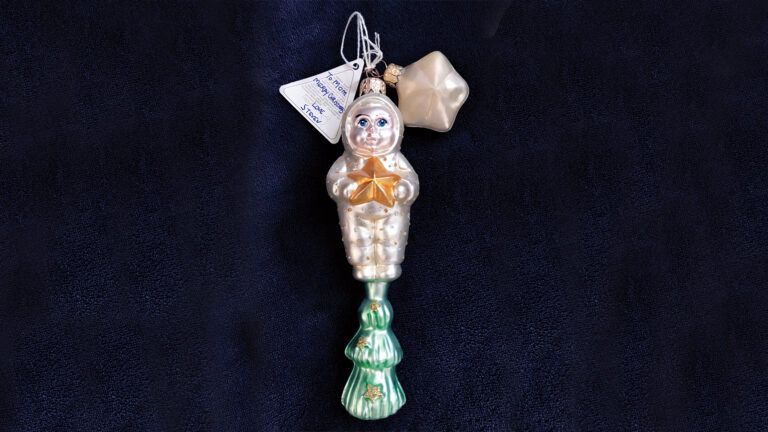When did you first become fascinated by the afterlife?
When I was growing up, in Georgia, there were people all around me who believed in the afterlife. But my parents regarded religion with a certain amount of bemusement. They weren’t atheists, they were just not interested.
I went to the University of Virginia in 1962 and decided to study philosophy. A lot of the great early philosophers, like Plato, were interested in cases of people who had supposedly died and come back.
In 1965, I met Dr. George Ritchie, a professor of psychiatry who had once been pronounced dead from pneumonia. His heart wasn’t beating for at least nine minutes. During that time, he underwent this amazing experience in which he saw different levels of eternity with Christ. Whether his experience was real or not, George absolutely was convinced. His goodness and solidity just came through.
READ MORE: SURPRISING FACTS ABOUT NEAR-DEATH EXPERIENCES
How do you define a near-death experience?
It’s a patterned experience people have after dying or almost dying. No two NDEs are exactly the same, but there are striking commonalities. Most people say they seem to leave their bodies and watch from above as their body is resuscitated. They pass down a dark tunnel and come out into a brilliant, warm and loving light.
They meet deceased friends and loved ones in spirit form. And they undergo a panoramic or holographic review of their lives in which they witness everything they’ve done from an external point of view. Often, this life review happens in the presence of a being of love and light.
Couldn’t the similarities of NDEs be explained by cultural influences?
I’ve gone to China, India, Japan, Russia, Africa, North and South America, and everywhere people tell me the same basic things. The accounts aren’t different, just the religious imagery.
People borrow imagery from their religious traditions to explain what they’ve experienced, but they’ll usually say, “I have to use the words from my own tradition because they’re the only ones I’ve got.”
Do you have to be religious to experience an NDE?
No, absolutely not. I have had lots of people tell me that, prior to having an NDE, they had no religious background. But they came back with some kind of assurance that there is a world beyond this one and that there is a God. It changes their lives dramatically. They come back and say that the most important thing we can do is to learn how to love. They have no more fear of death. Death is actually a transition.
What objections do detractors of NDEs raise?
Contemporary criticism of the idea of an afterlife is that it is unintelligible. To say that there’s a life after death is to say that there is life after the final irreversible sensation of life, which is a contradiction in logic. So we need a new set of rational principles for thinking about it.
READ MORE: NDEs—PROOF OF LIFE AFTER DEATH
If the mind shifted from one type of reality to some other framework of existence, and then came back from that, then of course people would talk nonsense! Now we have a method of actually scrutinizing the structure of that language and creating a classification system for types of nonsense.
It seems kind of ridiculous—“types of nonsense.” But the nonsense spoken by the dying falls into specific patterns; it’s not random. I’ve catalogued over 70 different types. We have the ability to actually follow the mind right through as it crosses into some other state of existence.
Critics say that there’s no scientific proof for NDEs, only stories.
Life after death is not a scientific question. It’s a philosophical and religious question. It may well be that sometime in the future we will have proof through science. But the fact that we don’t yet doesn’t mean that we can’t accept it on rational grounds. People just get so swept away by that word scientific.
Could the process of resuscitation or another physical process be causing NDEs?
What I can’t figure out is this—if it’s something physical, then why should bystanders sometimes share in a person’s NDE? This surgeon in Italy, for instance, told me that he was doing an elective operation on a fairly young man in good health. The patient had a cardiac arrest and the doctor was unable to resuscitate him. All of a sudden, the doors of the operating room were flung open and there was this woman.
She said, “I was out in the waiting room and my husband came to me. He told me to tell you that he’s not dead.” The doctor resumed the resuscitation and the patient’s heart started beating again. The first thing the patient said was, “I was up above my body and I kept trying to tell you I wasn’t dead, but you couldn’t hear me. So I told my wife.”
I hear from people all the time about how they participate in someone else’s NDE—that indicates that the experience is not due to oxygen deprivation to the brain.
Some people have admitted to lying about having an NDE. How can we tell who’s telling the truth?
There’s something different about people who’ve actually had NDEs. They have a serenity to them. With imposters, it’s all about “me, me, me.” Whereas someone who’s really been through this, it awakens a kind of modesty in them. A willingness to acknowledge that there’s a lot they don’t know.
In 1991, you attempted suicide and came close to death. What happened?
I had an autoimmune disease—one in which your body destroys your thyroid tissues. A typical symptom is suicidal ideations. Never did I think about having a near-death experience. I was just thinking about how unbearable the world seemed.
I didn’t have a life review or see my body from a distance. Just more of a sense that I was beginning to be drawn over into some different framework. It felt like I got close enough to see the city-limits sign. This world that we’re in seemed very dreamlike. I felt like I was waking up. Like when you look at something on a high-definition TV set—it looks more real than real.
One man I met who had an NDE after a suicide attempt compared it to walking out before the end of a movie—he was glad he survived because he needed to know how the movie turned out. That’s the attitude I’ve developed.
READ MORE: MY ANGELIC NEAR-DEATH EXPERIENCE
You wrote Life After Life at age 31. At 72, do you think more about your own mortality?
Oh, yes. Both my parents died at 72, so you have to think about things, especially when you have kids. I’m focusing on my kids and getting everything knitted together in this interesting existence that I’m in now. It’s very nice to be in the home stretch. It’s just fascinating to watch every little wrinkle form.
I’m ready to be out of here when God calls. My prayer is, Guide me gently through a painless and peaceful death on your schedule. That’s what I always say.
What are you still—excuse me—dying to find out about the afterlife?
You can’t really imagine what the afterlife is like until you get there, people tell me. So I’m not spending any time on that. I like to say that I’m an expert on the unknown and a specialist in guesswork. When I first looked through a telescope, when I was seven years old, I realized I’m never going to know much of anything. I don’t know that my curiosity will ever be satisfied. It’s just so much fun to keep on inquiring.





